FERRARI (2023)
In the 1950s, the founder of the Ferrari auto company struggles with crises in his business and his marriage...

In the 1950s, the founder of the Ferrari auto company struggles with crises in his business and his marriage...


My nervousness of heights wouldn’t make me the best mountain climber, but I love mountaineering movies. The same goes for motor racing films: I don’t have a driving license and have zero interest in the real sport, but dramatised versions or intense documentaries like Senna (2010) captivate me in ways I can’t resist.
Not every biopic roars to victory. For every exhilarating Rush (2013), there’s a Le Mans ’66 / Ford v Ferrari (2019) where the racing sequences deliver basic satisfaction but the off-track drama fails to convince. With Ferrari, Michael Mann (Heat) embraces a bold choice by prioritising character and business dynamics over adrenaline-pumping races. While the film boasts a single, electrifying race sequence, it confidently leans into the human complexities and corporate machinations behind the iconic brand.
The gamble largely pays off. While Ferrari doesn’t reach the heights of Rush, it’s several laps ahead of Le Mans ’66, whose storyline it prefigures by a decade (likely purely by coincidence). For Mann aficionados, the film offers plenty of familiar territory away from the crime genre: themes of masculinity, extreme danger, and the precariousness of the family unit take centre stage, echoing concerns explored in Mann’s previous work, including earlier sports film Ali (2001)
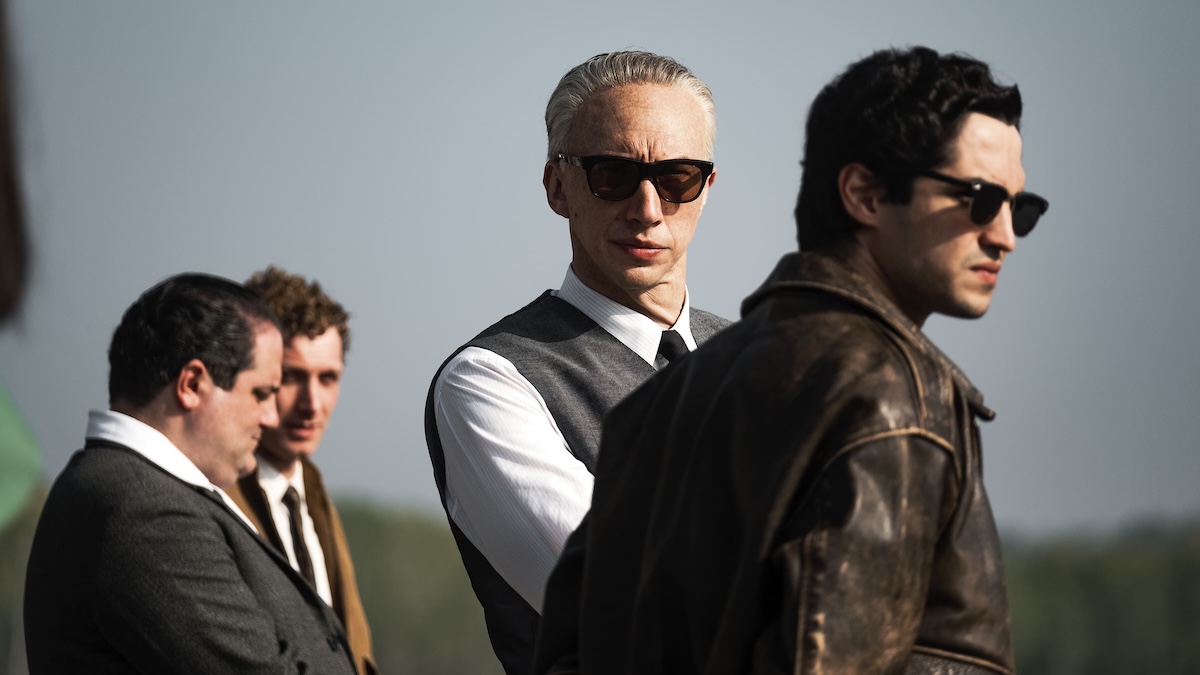
The movie starts by mixing black-and-white montage footage, likely dating back to the 1920s, with shots of Adam Driver cleverly interspersed behind the wheel, creating the illusion of his presence in that era. However, the main story takes place in 1957, focusing on a specific period in the life of Enzo Ferrari (Driver). It begins with him leaving his house near Modena, Italy, for his office, this time in a considerably less glamorous car.
Enzo Ferrari is middle-aged now, and perhaps we can already sense an inclination in him to find youthful thrills through his drivers. The film feels rather enclosed for most of its duration, even featuring a pigeon so accustomed to captivity that it prefers its cage even when escape is possible. Then, at the climactic race, the focus shifts decisively to the drivers themselves, making it clear that their stories, not Ferrari’s, become the focus of attention.
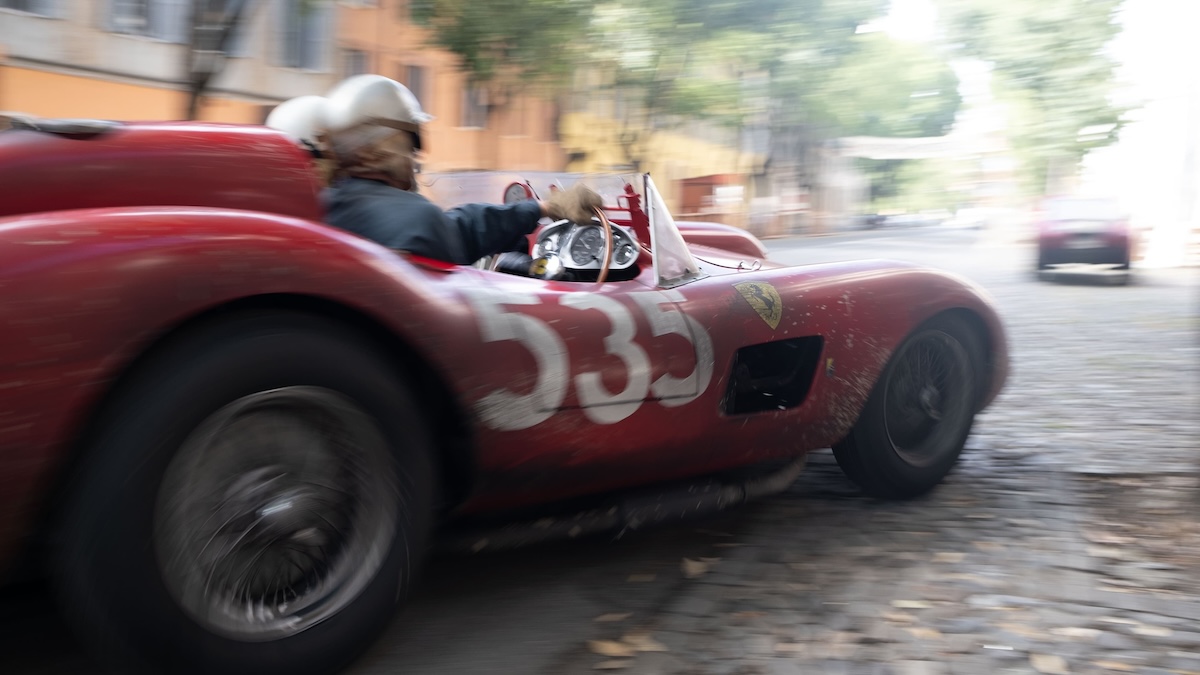
That crucial race lies months ahead, but Ferrari’s marriage to Laura (a terrific Penélope Cruz) already troubles, shaken by the death of their son Dino, though glimpses of the boy in fleeting flashbacks offer only bittersweet reprieve. His loss, a constant weight on their hearts, hovers over the film like an admonition.
While Ferrari’s relationship with his mistress (Shailene Woodley) appears to happier, a subtle tension still lingers beneath the surface, mirroring the dire situation unfolding at his automobile company that’s about to go bankrupt. Although his passion lies in sleek sports cars, he holds little regard for the “production cars” that cater to wealthy individuals yearning for a taste of Ferrari’s racing pedigree. However, a trusted advisor intervenes, proposing a bold strategy: to conquer the gruelling thousand-mile Mille Miglia race and leverage the resulting publicity to boost sales of those very cars.
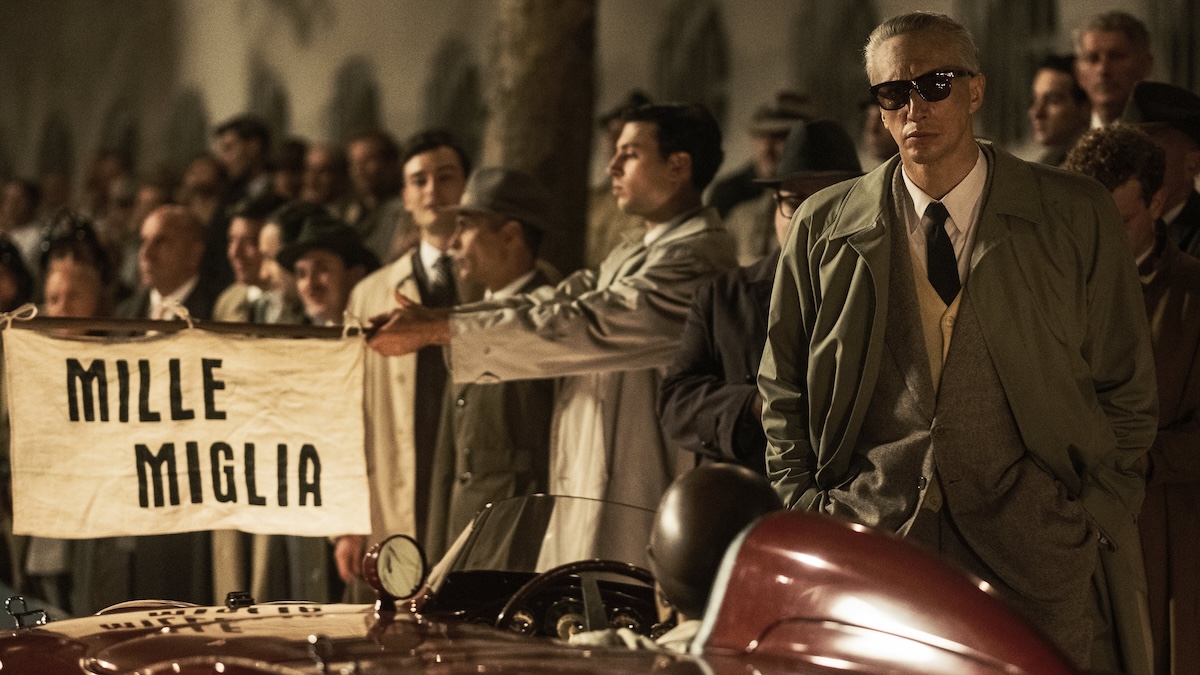
Mann’s film primarily revolves around Enzo Ferrari himself, with the two women in his life serving as principal subsidiary characters. This focus is particularly evident in one of the best scenes, where reluctantly conducts negotiations at the bank to hand her share of the company over to Ferrari.
While several racing drivers feature in small parts, only Alfonso De Portago (Gabriel Leone)—a recent recruit to the Ferrari stable—gets significant development. Collectively, though, they play a significant role. Ferrari’s speech to them at a team lunch about the necessity of ruthless determination is another highlight, as is the effective montage where he sees the drivers off for the Mille Miglia, one by one. Then, shortly after, comes a shocking twist that will be completely unexpected if you’re not familiar with the history. It’s horrific, and barely foreshadowed at all.
Adam Driver’s controlled intensity embodies Ferrari perfectly. While his recent Italian turn as the deliciously pampered Maurizio Gucci in House of Gucci (2021) might flicker across your mind at first, it quickly fades beneath the sheer force of his portrayal here.

Enzo Ferrari’s shared obsession with racing with the men in his circle (who even brought stopwatches to Mass to time imaginary circuits, straining to hear engines over the sermons) feels authentic without veering into caricature. So too does his cold detachment: he had to “build a wall” in his own emotions to avoid being devastated by the deaths of drivers, he explains. The film repeatedly ponders the cracks in this wall, for the deaths of sons (both literal, like Dino, and metaphorical) are a recurring theme in Ferrari’s life, with his drivers arguably becoming sons of a kind. Though seemingly lonely even with his mistress, he appears more deeply connected to them.
Among the supporting cast, Cruz is absolutely Driver’s match in their shared scenes—especially in the way she becomes more alive when she thinks she has the upper hand—and though Woodley playing his mistress has a less interesting character to work with, she does it plausibly and sympathetically despite failing to convince as an Italian. (I actually thought the character was supposed to be an American expat at first.) Daniela Piperno as Ferrari’s mother, Adalgisa, is also hilarious: very much the kind of elderly Italian lady you cross at your peril.
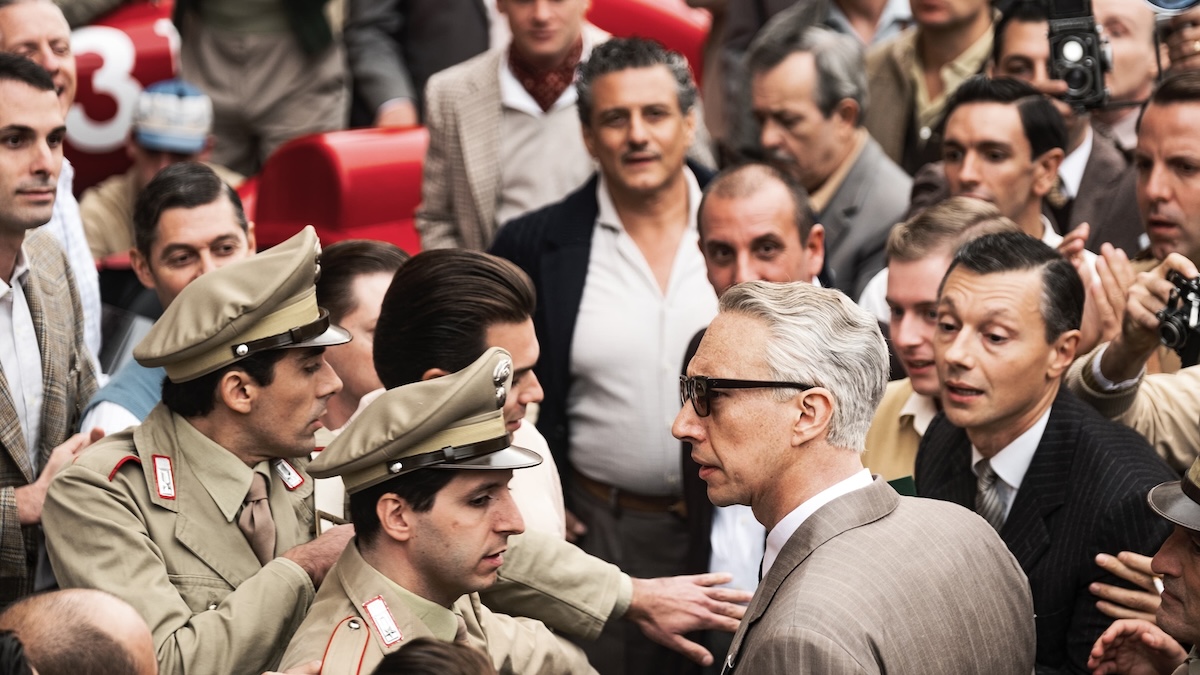
Erik Messerschmidt, whose impressive work with David Fincher (The Killer, Mank, Mindhunter) established him as a trusted collaborator, delivers clarity in Ferrari’s cinematography. Mann’s signature blues cede to a dominant brown palette, reflecting the film’s subdued tone. The once chilling precision of his visuals has yielded to a more earthbound aesthetic, evident in the dark interiors, rain-soaked exteriors, and a deliberate absence of the usual cinematic sunshine. Only briefly, during the Mille Miglia itself, is there the tiniest glimpse of touristic Italy.
The racing sequences themselves are often shot from low angles, providing a great sense of velocity, though they don’t provide much insight into driving tactics. The comparatively low tech of the era is almost tangible. So even if Ferrari is primarily a film of character and dialogue, rather than action, what we see supports it well; disappointingly, the same can’t be said of the score by Daniel Pemberton, as blatantly obvious and overwrought as his music for Aaron Sorkin’s The Trial of the Chicago 7 (2020).
Ferrari is a film drenched in darkness, with few smiles either on the screen or in the cinema seats. Yet it doesn’t succumb to unremitting grimness. Like much of Mann’s work, it dives deep into the abyss of human ambition, exploring the furthest reaches of one man’s drive, both intrinsic and external. While unlikely to be heralded as one of the great racing movies, Ferrari shines as an intricate character study, crafted with quiet power by both director and his actors.
USA • UK • ITALY • CHINA | 2023 | 130 MINUTES | 2.39:1 | COLOUR • BLACK & WHITE | ENGLISH

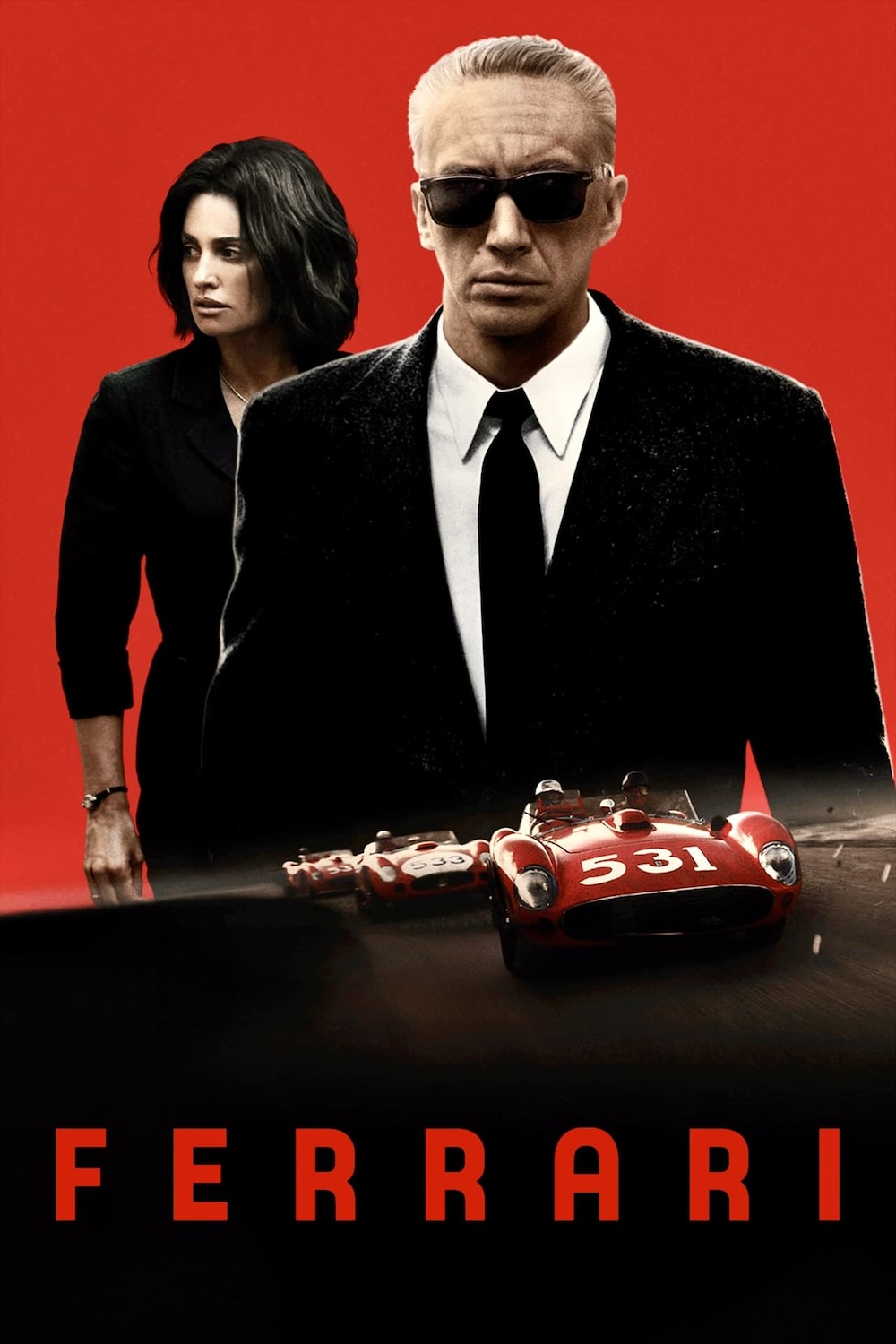
director: Michael Mann.
writer: Troy Kennedy Martin (based on the book ‘Enzo Ferrari: The Man, The Cars, The Races, The Machine’ by Brock Yates).
starring: Adam Driver, Penélope Cruz, Shailene Woodley & Gabriel Leone.
